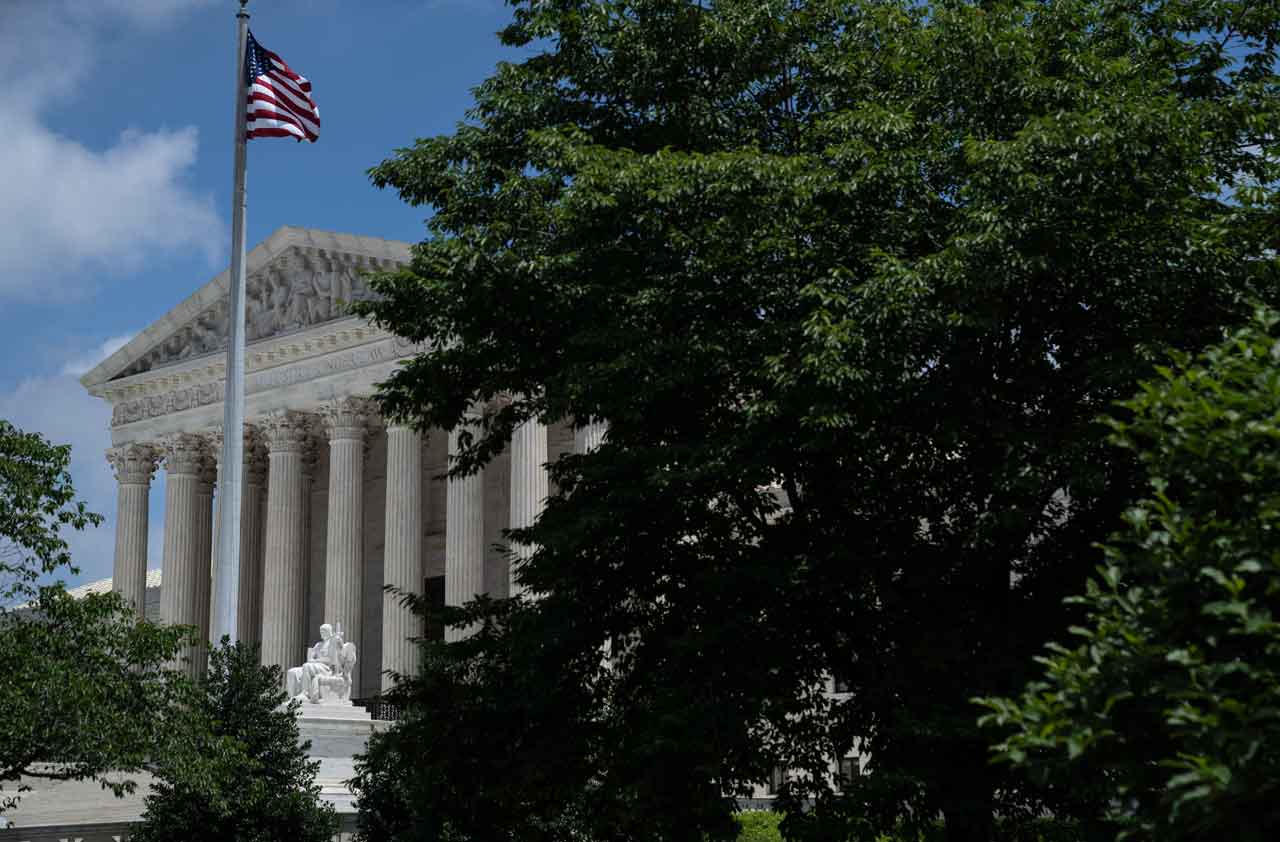The Economic Price of Sequestration
The automatic cuts likely won't cause a recession. But the economy would grow faster without the endless gridlock.

Profit and prosper with the best of Kiplinger's advice on investing, taxes, retirement, personal finance and much more. Delivered daily. Enter your email in the box and click Sign Me Up.
You are now subscribed
Your newsletter sign-up was successful
Want to add more newsletters?

Delivered daily
Kiplinger Today
Profit and prosper with the best of Kiplinger's advice on investing, taxes, retirement, personal finance and much more delivered daily. Smart money moves start here.

Sent five days a week
Kiplinger A Step Ahead
Get practical help to make better financial decisions in your everyday life, from spending to savings on top deals.

Delivered daily
Kiplinger Closing Bell
Get today's biggest financial and investing headlines delivered to your inbox every day the U.S. stock market is open.

Sent twice a week
Kiplinger Adviser Intel
Financial pros across the country share best practices and fresh tactics to preserve and grow your wealth.

Delivered weekly
Kiplinger Tax Tips
Trim your federal and state tax bills with practical tax-planning and tax-cutting strategies.

Sent twice a week
Kiplinger Retirement Tips
Your twice-a-week guide to planning and enjoying a financially secure and richly rewarding retirement

Sent bimonthly.
Kiplinger Adviser Angle
Insights for advisers, wealth managers and other financial professionals.

Sent twice a week
Kiplinger Investing Weekly
Your twice-a-week roundup of promising stocks, funds, companies and industries you should consider, ones you should avoid, and why.

Sent weekly for six weeks
Kiplinger Invest for Retirement
Your step-by-step six-part series on how to invest for retirement, from devising a successful strategy to exactly which investments to choose.
All sides agree that sequestration — triggering an $85-billion round of forced budget cuts, spread widely across some areas, while leaving other top drivers of future debt largely untouched — is bad policy.
Truth is, it's not policy at all but a symbol of dysfunctional government and turmoil among Washington's political classes. They've been unable to agree on a budget in three years and are stumbling into an uncertain process because partisan rancor is so intense, they can't negotiate.
Sequestration crimps national economic growth, though how badly depends upon how long it lasts. It won't derail a slow-paced recovery from the Great Recession but does create uncertainty that will potentially take a toll on key drivers of growth, including consumer spending, business investment, exports and government spending.
From just $107.88 $24.99 for Kiplinger Personal Finance
Become a smarter, better informed investor. Subscribe from just $107.88 $24.99, plus get up to 4 Special Issues

Sign up for Kiplinger’s Free Newsletters
Profit and prosper with the best of expert advice on investing, taxes, retirement, personal finance and more - straight to your e-mail.
Profit and prosper with the best of expert advice - straight to your e-mail.
The saving grace is that overall job and income gains (a booming stock market helps) should support consumer spending. Meanwhile, a housing market recovery helped by record-low interest rates is expected to strengthen as the year wears on, offsetting some of sequestration's drag.
At some point, lawmakers and administration officials likely will seek a way out by resuming efforts to find a larger deal, a sort of grand bargain overhauling at least some elements of tax policy and revamping entitlement programs like Medicare and Social Security. Odds are that public disapproval will pressure officials toward talks, likely within weeks after a round of finger-pointing and blame, but that sequestration will remain in effect for the remaining seven months of fiscal year 2013.
Sequestration is intended to cut spending by about $1.2 trillion over nine years, from 2013 through 2021. Some $85 billion in cuts falls in the remaining seven months of FY 2013, and about $110 billion a year in cuts occurs thereafter, producing some interest savings that count toward the overall targeted cut. It won't last that long: No process, especially one as blunt and unpopular as sequestration, lasts that long in Washington.
But it could last into 2014, deeply entangled as it is in political jockeying, over taxes and spending, between Democrats and Republicans playing to their constituencies ahead of 2014 midterm elections.
$85 billion represents a 2.4 percent cut from a $3.55 trillion budget. Households deal with larger spending trims regularly, and so do corporations. Half the $85 billion would be absorbed by defense — on discretionary programs for things like weapons purchases, base operations and construction — and half by domestic programs.
Tough Hurdle Still Ahead
But even with less money flowing to states already, payment cuts to contractors and warnings about furloughs, the bigger date to keep in mind is March 27. That's when a continuing resolution that finances government operations in the absence of a budget runs out. Look for the $85 billion of sequestration cuts to be baked into a bill to finance the government past that date until September 30. And if the president and Congress can't agree on that, then the prospect of a government shutdown actually looms.
Sequestration's impact is rippling, rather than immediate, as affected government agencies schedule furloughs and pare back spending. Moreover, not all of this fiscal year's cuts fully occur by September 30, because outlays on big programs occur in increments over weeks and months. But the cuts have the potential to reduce economic expansion by about 0.6% this year. That could pull an already soft GDP growth rate forecast of 2% down to around 1.5% to 1.75%, assuming that housing and business investment keep strengthening enough in the second half to offset some of the sequestration's drag.
Sequestration also costs jobs, though just how many is up in the air: up to 750,000 by the Congressional Budget Office estimate, less in the view of private analysts who estimate near 300,000. That is no help for consumer spending, especially after the increase in Social Security payroll taxes earlier in the year. But overall, monthly payrolls are continuing to grow and that should keep retail sales advancing at around 5 percent this year.
In contrast to government and despite its distaste for Washington's dithering, the private sector has some momentum stemming from strong corporate profits, continued low interest rates, easier access to bank credit, firmer demand and higher stock prices, which add impetus to business investment. That should continue into the second half of the year and into 2014. It will be reflected in firmer investment tied to home building, particularly if housing starts strengthen further.
Trade is a headwind for the economy this year — buffeted by recession in Europe and more moderate growth in China that is weakening export markets. Sequestration has little direct impact on trade performance, aside from the possibility that a wave of furlough notices might tamp down demand for imported goods initially, which would potentially benefit the trade balance.
A short-lasting government shutdown after March 27, still seen as a good possibility, will be a further knock on growth. It might be headed off, because House Speaker John Boehner says he won't force one and Democrats say they don't want one.
Republicans are offering some flexibility on trimming the defense budget and the White House says it is open to discussion about cutting entitlements like Medicare and Social Security, so both sides seem to be looking for compromise.
The best-case scenario for an unwanted budget process that all sides ridicule as dumb, blunt or downright stupid is that it provokes enough outrage to force politicians to quickly negotiate a longer-term deficit reduction pact to avert shutdown and replace sequestration. Tax loopholes could be closed, raising revenues. Changes could be instituted, such as using a chained CPI measure to gauge future rises in entitlements. This would more accurately reflect people's behavior in response to price increases.
If Social Security payments next year then went up by about 2.4%, instead of by 2.6% or 2.7%, the reduction in government outlays could be hefty.
Sequestration won't tip the U.S. economy back into recession this year or in 2014, largely because 2013 began with some long-awaited private-sector vigor, reflected in stronger housing markets, revived new-car sales and modest gains in business orders and spending.
The irony that analysts note is that if gridlock about a course for spending and deficit reduction were set aside, U.S. businesses and consumers would receive a shot of confidence that could push GDP growth up not only this year but also next, closer to the 3-percent pace needed to lower long-term unemployment.
Profit and prosper with the best of Kiplinger's advice on investing, taxes, retirement, personal finance and much more. Delivered daily. Enter your email in the box and click Sign Me Up.

-
 How Much It Costs to Host a Super Bowl Party in 2026
How Much It Costs to Host a Super Bowl Party in 2026Hosting a Super Bowl party in 2026 could cost you. Here's a breakdown of food, drink and entertainment costs — plus ways to save.
-
 3 Reasons to Use a 5-Year CD As You Approach Retirement
3 Reasons to Use a 5-Year CD As You Approach RetirementA five-year CD can help you reach other milestones as you approach retirement.
-
 Your Adult Kids Are Doing Fine. Is It Time To Spend Some of Their Inheritance?
Your Adult Kids Are Doing Fine. Is It Time To Spend Some of Their Inheritance?If your kids are successful, do they need an inheritance? Ask yourself these four questions before passing down another dollar.
-
 U.S. Manufacturing Is Already Ailing from Coronavirus
U.S. Manufacturing Is Already Ailing from CoronavirusEconomic Forecasts Supplies are hard to come by, and in the longer-term demand may be at risk.
-
 Will You Have to Pay More Sales Taxes on Your Online Purchases?
Will You Have to Pay More Sales Taxes on Your Online Purchases?business One thing’s for sure: Consumers who live in one of the five states without a sales tax won’t be affected by the Supreme Court’s ruling.
-
 What to Expect From the New Fed Chief
What to Expect From the New Fed ChiefEconomic Forecasts By and large, Jerome Powell will move along the path set by his predecessor.
-
 How a Border Tax Would Affect You
How a Border Tax Would Affect YouBusiness Costs & Regulation A plan to limit imports could raise prices but also create more jobs.
-
 A Housing Shortage Looms: Builders Can’t Keep Up
A Housing Shortage Looms: Builders Can’t Keep Upbusiness Starter homes especially are becoming scarce.
-
 Help Wanted in America: Skilled Workers
Help Wanted in America: Skilled WorkersTechnology In an ever-more-competitive job market, technology increases the need for skilled workers.
-
 The Unintended Consequences of a Boost in Overtime Pay
The Unintended Consequences of a Boost in Overtime PayBusiness Costs & Regulation New rules mean millions more employees will be overtime-eligible. But will employers find workarounds?
-
 U.S. Economy to Perk Up in Second Half
U.S. Economy to Perk Up in Second HalfEconomic Forecasts Consumers are recovering from a swoon induced by a wobbly stock market. But energy, other sectors will continue to struggle.